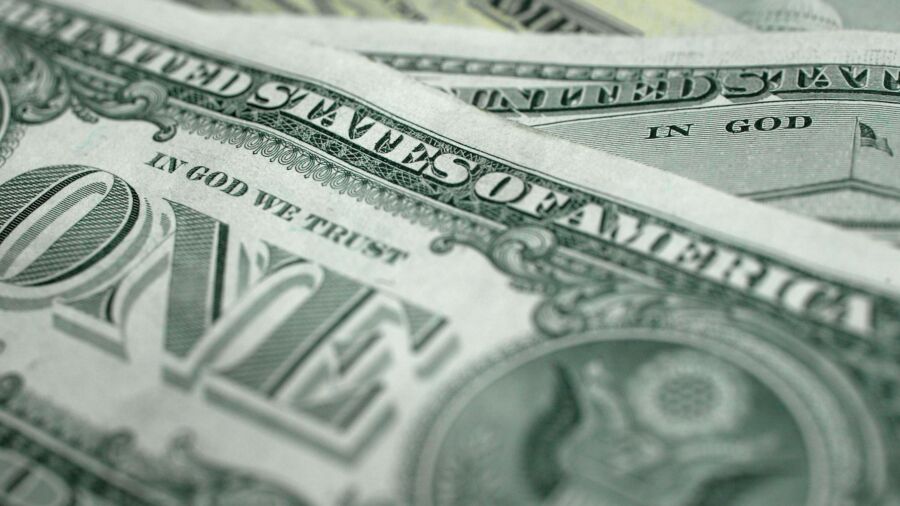As much as 10 percent of the $4.2 trillion the U.S. government has disbursed in COVID-19 relief aid may have been lost to fraud and waste.
A new analysis of COVID relief spending by the Associated Press estimates fraudsters collected more than $283 billion while another $120 billion was wasted or misspent. The news outlet expects estimates of pandemic waste and fraud to grow as investigators continue to review additional potential fraud schemes.
The U.S. government approved about $3.2 trillion in pandemic relief spending under President Donald Trump, and another $1.9 trillion under President Joe Biden. Of the approximately $5 trillion allocated for pandemic relief, about $1 trillion has yet to be paid out.
Estimates for pandemic relief fraud and waste already vary widely. The U.S. Department of Labor Inspector General has indicated $191 billion in pandemic-era unemployment insurance (UI) payments may have been improper, though others estimate the total UI fraud and waste could be as high as $400 billion. Researchers have estimated as much as $80 billion of Paycheck Protection Program (PPP) loans had indications of possible fraud.
Those involved with tracking down the fraud say there was simply too little oversight and too few restrictions on who could apply for relief funds, making it all too easy for fraud to take place.
While some individuals made off with millions in pandemic relief funds, the pilfering was often wide but not so deep.
“Here was this sort of endless pot of money that anyone could access,” said Dan Fruchter, the head of the fraud and white-collar crime unit with the office of the U.S. Attorney for the Eastern District of Washington. “Folks kind of fooled themselves into thinking that it was a socially acceptable thing to do, even though it wasn’t legal.”
The overall massive scale of the pandemic relief that went out also obscured multi-billion-dollar mistakes. While the Internal Revenue Service had a 99 percent success rate in handling an $837 billion stimulus check program, its 1 percent error rate amounts to about $8 billion going to “ineligible individuals.”
In the seven decades before the pandemic, the Small Business Administration (SBA) had distributed $67 billion in disaster loans. During the pandemic, the SBA ended up handling more than a trillion dollars across the COVID-19 Economic Injury Disaster Loan and PPP loans. As the SBA took on a much larger financial responsibility, it was tasked with rapidly processing loans.
To speed up the process, the SBA allowed potential borrowers to “self-certify” that their application details were true. The Coronavirus Aid, Relief, and Economic Security (CARES) Act also barred the SBA from looking at tax return transcripts that could have identified potentially fraudulent or unqualified applicants.
“If you open up the bank window and say, give me your application and just promise me you really are who you say you are, you attract a lot of fraudsters and that’s what happened here,” said Michael Horowitz, the U.S. Justice Department inspector general and chair of the federal Pandemic Response Accountability Committee (PRAC).
Clawing Back Relief Funds
Hundreds of people have been charged in connection with various pandemic fraud schemes.
In August, Biden signed legislation to increase the statute of limitations from five to 10 years on crimes involving Economic Injury Disaster and PPP loans.
Congress has not yet passed a measure that would give prosecutors additional time to go after UI fraud.
Earlier this year, Department of Labor Inspector General Larry Turner testified (pdf) that he expects his department to be busy investigating pandemic-related fraud through at least September 2026 “when the statute of limitations for most pandemic-related violations will have expired.” Without extending his deadline, Turner warned that people who stole the benefits may escape justice.
In addition to providing more time to prosecute pandemic fraud, Republican lawmakers requested a return of unspent COVID relief funds during a recent debate over the debt limit increase. In total, Republicans reached an agreement with Democrats to rescind $30 billion in unspent COVID relief funds as part of the final deal to increase the debt limit earlier this month.
The Associated Press contributed to this article.

